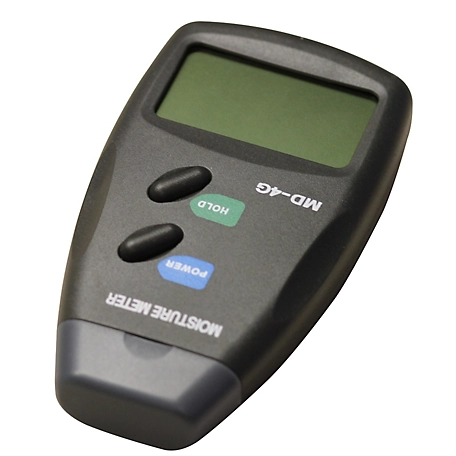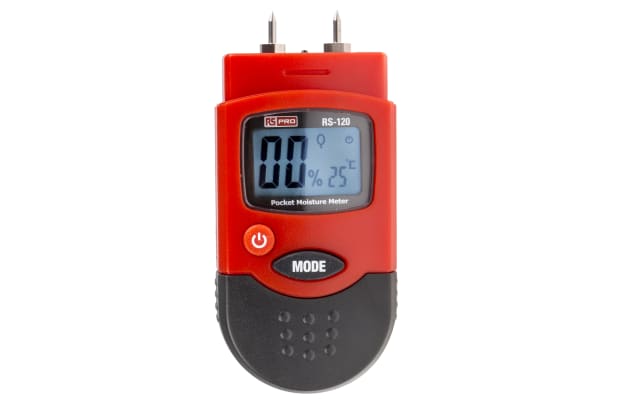The Ultimate Guide to Moisture Meters: A Comprehensive Introduction and How They Can Save You Money
In the realm of structure upkeep, building, and various markets, the value of precisely measuring moisture degrees can not be overemphasized. Moisture meters function as essential tools in detecting and keeping track of moisture content in products, helping in preventing costly damages and making certain the quality of products. Understanding the nuances of various types of moisture meters, their applications, and the prospective cost-saving benefits they provide can be a game-changer for experts and organizations alike. Finding how these devices can not only streamline procedures but also add to monetary cost savings is a journey worth starting.
Kinds Of Moisture Meters
One typical type is the pin-type dampness meter, which determines the electric resistance in between 2 pins put right into a material. Pinless wetness meters, on the other hand, usage electromagnetic sensing unit plates to scan a larger area without causing damage to the product's surface area.
Additionally, there are also specialized wetness meters created for specific materials like dirt, grain, or hay. These meters give precise dampness analyses customized to the special properties of the product being checked. Infrared wetness meters determine the thermal residential properties of a product to establish its wetness material non-invasively, making them helpful for applications where pin or pinless meters may not be ideal. Understanding the various sorts of wetness meters available can assist sectors pick one of the most proper tool for their particular wetness measurement requirements.

Benefits of Making Use Of Moisture Meters

Moreover, utilizing wetness meters can lead to boosted power effectiveness. By identifying areas with high dampness levels, such as leaks or bad insulation, changes can be made to boost power conservation and lower utility expenses. In farming settings, wetness meters play a vital role in enhancing crop returns by enabling farmers to keep an eye on dirt moisture degrees and make informed watering choices. Overall, the benefits of utilizing wetness meters extend across different markets, giving affordable solutions and advertising far better quality assurance practices.
Just How to Pick the Right Moisture Meter
Selecting the suitable moisture meter involves considering key factors such as material compatibility, dimension array, and calibration precision. When selecting a dampness meter, it's vital to make sure that the meter is appropriate for the certain material you will be screening. Various materials have varying electric residential or commercial properties that can impact wetness readings, so picking a meter created for your material is crucial for exact outcomes. Furthermore, consider the dimension variety of the moisture meter. Make sure that the meter can find wetness degrees within the variety needed for your applications. Calibration accuracy is one more vital factor to bear in mind (Moisture Meter). Go with a dampness meter with trustworthy calibration to make certain constant and precise analyses. Some meters may need regular calibration adjustments, so browse around this web-site recognizing the calibration process is essential. By meticulously examining these aspects, you can pick a dampness meter that satisfies your needs and provides precise wetness measurements for your projects.
Proper Strategies for Moisture Meter Use
To guarantee precise moisture readings and make the most of the efficiency of a moisture meter, utilizing proper strategies is essential. When making use of a pin-type wetness meter, this link put the pins or probes into the material being checked till they make full call. By adhering to these appropriate strategies, customers can depend on their moisture meter to provide credible wetness degrees, helping in protecting against expensive damage or making sure top quality in different applications.

Price Cost Savings Through Moisture Meter Applications
How can the tactical application of moisture meters cause significant expense savings throughout different industries? Moisture meters play an important role in cost savings by stopping potential damages and ensuring quality assurance in different markets. In the agriculture sector, wetness meters help in determining the optimal time for gathering plants, stopping over-drying or excess dampness that can affect the end product's quality. This specific tracking assists farmers stay clear of unneeded losses and optimize their yield.

In addition, in the food processing industry, dampness meters are crucial for monitoring product quality and ensuring compliance with security policies. By properly measuring wetness web content in food, suppliers can stop putridity, preserve freshness, and lower waste, resulting in significant cost savings. Generally, the calculated application of dampness meters is a beneficial investment that can result in significant expense reductions and boosted effectiveness across numerous markets.
Conclusion
To conclude, wetness meters are beneficial tools for spotting and gauging moisture levels in numerous products. By using the appropriate moisture meter and adhering to proper methods, customers can successfully protect against costly problems created by excess wetness. this Buying a quality wetness meter can bring about significant expense financial savings in the future by identifying possible concerns at an early stage and allowing timely removal. Ultimately, moisture meters are necessary instruments for maintaining the stability and durability of products and frameworks.
Wetness meters offer as important tools in discovering and checking moisture material in materials, aiding in preventing expensive damages and guaranteeing the quality of items. Infrared wetness meters measure the thermal buildings of a product to identify its wetness content non-invasively, making them valuable for applications where pin or pinless meters might not be suitable.Dampness meters use indispensable advantages in properly analyzing and keeping an eye on wetness levels in diverse products and settings. In farming settings, dampness meters play a vital role in maximizing plant returns by making it possible for farmers to monitor soil moisture degrees and make informed watering decisions.In conclusion, wetness meters are beneficial devices for detecting and determining wetness degrees in various products.